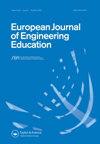ChatGPT versus engineering education assessment: a multidisciplinary and multi-institutional benchmarking and analysis of this generative artificial intelligence tool to investigate assessment integrity
IF 2.8
Q2 EDUCATION & EDUCATIONAL RESEARCH
引用次数: 16
Abstract
ABSTRACT ChatGPT, a sophisticated online chatbot, sent shockwaves through many sectors once reports filtered through that it could pass exams. In higher education, it has raised many questions about the authenticity of assessment and challenges in detecting plagiarism. Amongst the resulting frenetic hubbub, hints of potential opportunities in how ChatGPT could support learning and the development of critical thinking have also emerged. In this paper, we examine how ChatGPT may affect assessment in engineering education by exploring ChatGPT responses to existing assessment prompts from ten subjects across seven Australian universities. We explore the strengths and weaknesses of current assessment practice and discuss opportunities on how ChatGPT can be used to facilitate learning. As artificial intelligence is rapidly improving, this analysis sets a benchmark for ChatGPT’s performance as of early 2023 in responding to engineering education assessment prompts. ChatGPT did pass some subjects and excelled with some assessment types. Findings suggest that changes in current practice are needed, as typically with little modification to the input prompts, ChatGPT could generate passable responses to many of the assessments, and it is only going to get better as future versions are trained on larger data sets.ChatGPT与工程教育评估:对这种生成式人工智能工具进行多学科和多机构的基准测试和分析,以调查评估的完整性
ChatGPT是一个复杂的在线聊天机器人,一旦有报道称它可以通过考试,它就会在许多领域引起轩然大波。在高等教育中,它引发了许多关于评估真实性的问题,以及在检测剽窃方面的挑战。在随之而来的狂热喧嚣中,也出现了ChatGPT如何支持学习和批判性思维发展的潜在机会。在本文中,我们通过探索ChatGPT对澳大利亚七所大学的十个科目的现有评估提示的反应,研究了ChatGPT如何影响工程教育的评估。我们探讨了当前评估实践的优缺点,并讨论了如何使用ChatGPT促进学习的机会。随着人工智能的迅速发展,该分析为ChatGPT在2023年初响应工程教育评估提示方面的表现设定了基准。ChatGPT确实通过了一些科目,并在一些评估类型中表现出色。研究结果表明,需要对当前的实践进行更改,因为通常只需对输入提示进行少量修改,ChatGPT就可以对许多评估生成可通过的响应,并且随着未来版本在更大的数据集上进行训练,它只会变得更好。
本文章由计算机程序翻译,如有差异,请以英文原文为准。
求助全文
约1分钟内获得全文
求助全文
来源期刊

European Journal of Engineering Education
EDUCATION & EDUCATIONAL RESEARCH-
CiteScore
7.30
自引率
13.00%
发文量
64
期刊介绍:
European Journal of Engineering Education is published six times a year in print and electronic editions and provides an essential forum for dialogue between researchers and specialists in the field of engineering education, at European and worldwide levels. European Journal of Engineering Education is the Official Journal of SEFI, the Socièté Européenne pour la Formation des Ingénieurs (the European Society for Engineering Education). SEFI is a non-governmental organization whose aims are to develop information about engineering education, to improve communication and exchange between professors, researchers and students and to promote cooperation between the various institutions concerned with engineering education.
 求助内容:
求助内容: 应助结果提醒方式:
应助结果提醒方式:


